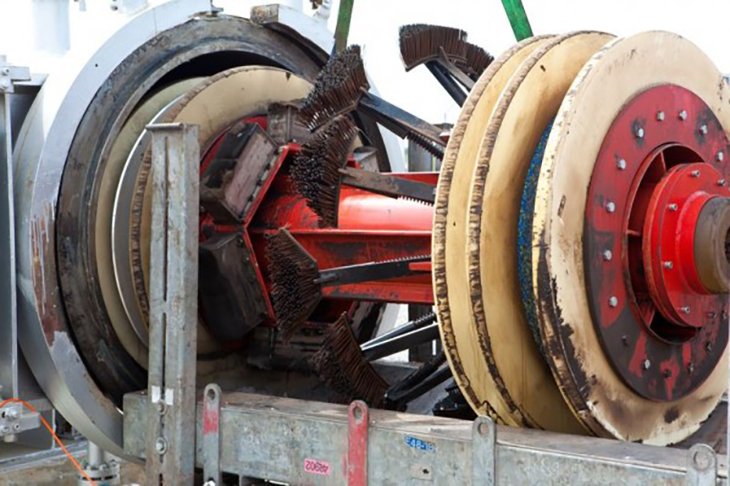Farm wastes have become a problem. Cow and pig wastes often produce methane gasses that are detrimental to the environment. Farmers have been looking for ways to get rid of the problem. What do they do? What is the best solution for this?
One farmer has come to realize that these gasses can actually be turned to energy. Thus, this will be able to solve the problems of power and pollution. It’s all about careful planning and when done properly, this could change the face of animal farming for the better.

Australian ranchers have looked for the perfect method of allowing the waste of their animals to take care of their own energy usage. Animal byproducts can actually help cut down the expensive electricity costs by converting pig and cow excrement into fuel that can be used for biogas power plants.
These animal farms are oftentimes called “piggeries” in Australia. Sadly, many of them haven’t garnered quite a good reputation, especially when it comes to going green or in terms of cleanliness. However, with the changes recently made, they have become quite environmentally friendly, especially when it comes to climate change. This was thanks to a concerted effort and some investments made by industry organizations and individual ranchers. Their farms have turned pork into the second-lowest GHG producing agricultural source in Australia, and that’s something they can take pride in.
Jock Charles is the operator of Berrybank Piggery. The dream of going green started around 27 years ago. He began to invest his money into waste-to-energy systems on the property he handled. He takes care of a whopping 20,000 pigs at any given time. Back then, the waste that came from pigs was collected and dumped into “effluent ponds.” This was where the manure was treated with anaerobic bacteria to break it further down.
Now, the process has been made even better. Charles built a bio-digester. This is where manure is pumped it into a machine. The said machine works in parallel to a pig’s stomach. Once in the pipes, bacteria breaks waste down into harmless manure. During the process, methane is produced and converted by a turbine into heat. This then has the ability to generates around 90 percent of Berrybank’s electricity needs.
“We are producing about the same as we use, but during the day when we’re running the feed mill and a few other things, we are pulling some power in from the grid, and then in the evening, we export power,” Charles said when he spoke to ABC Australia.
With this new method, Charles has managed to reduce his energy costs by 90 percent. Aside from the money saved, the bio-digester makes the piggery a much more pleasant place to work in because they now have a better and faster disposal option for the 80,000 liters of liquid waste every single day.
“Seventy per cent of odor from piggeries comes out of lagoons or ponds [that are used to store manure], so if you can eliminate the ponds, which we’ve been able to do, then you’re only dealing with 30 per cent [of the smell],” Charles explained.
Being a Good Neighbor
The biogas energy he produces is transforming the Australian pork industry. A study was actually made by the experts in Grattin Institute. Their research showed that now, only 2 percent of all ag-related emissions come from pork. When you consider the numbers, this is even less than vegetable production. Moreover, Australian Pork Limited, a well-respected industry research firm, says that 80 percent of all farm emissions can be lowered when biogas is used. More importantly, 16 percent of all piggeries in the country are now operating bio-digesters when it comes to manure management. They are also doing this for the green energy generation.
The piggeries aren’t the only ones benefiting from this manure-powered movement. Charles, being the good neighbor that he is, had managed to also assist a nearby dairy farm at Bungaree to install their own bio-digester. They also wanted to go green and he was more than happy to extend a helping hand.
Mark Trigg runs a robotic dairy farm in the neighboring farm and this produces tens of thousands of liters of manure. The bio-digester that was recently installed turned the waste into energy and produced enough electricity to cover about half of the dairy’s need.
Trigg and his parent company, Gekko Systems, also runs a gold mine of all things. They were able to take the solids leftover that came from the process and converted these into fertilizer. Charles, on the other hand, is very familiar with the process because has been making fertilizer for years. The bio-digester he made can produce 20 different varieties fertilizers that he currently sells on the market.
Gekko Systems Sandy Gray says how much he loves farming and “ended up in mining by mistake.” He is a firm believer that technology can be used on mining operations in remote locations. He’s also considering the creation of a shipping-container-sized model of the bio-digester and biogas engine for mining purposes. “We’ve got interest from a mining company in human waste, they’ve got communities they’ve got to deal with in remote areas,” he said to ABC Australia.
As they say, one man’s waste is another man’s treasure. In this case, so many have benefitted from simply going green.
What are your thoughts? Please comment below and share this news!
True Activist / Report a typo


